
LAHORE: The Lahore High Court (LHC) refused to temporarily restore access to YouTube, a video sharing website, again in the country on Thursday.
However Justice Mansoor Ali Shah of the LHC ordered the Ministry of Information Technology to form suggestions to block access to blasphemous material on the internet in Pakistan and inform the court about them on July 25.
Justice Mansoor Ali Shah of the LHC issued this order on the petition filed by an NGO, Bytes For All, seeking a lift on the ban on YouTube in the country.
The judge sought suggestions from the ministry as it expressed its inability to block the material as counsel for the petitioner said that the particular objectionable material, instead of the entire website, could be blocked.
Counsel for the petitioner Advocate Yasir Latif Hamdani requested the judge to issue orders for reopening the website temporarily but the court denied it.
A representative of the ministry said that it was a sensitive issue and the reopening of the website could cause unrest in the entire country.
The judge said that he was not an expert on the matter and asked the Ministry of IT to form a committee on the issue.
He said that the ministry could invite suggestions from the people as well to permanently block blasphemous material on the internet.
YouTube had been blocked across Pakistan on September 17, 2012 following orders by then Prime Minister Raja Pervez Ashraf.
The prime minister had imposed the ban after YouTube refused the Pakistani government to remove a ‘blasphemous’ film from the website.
In the petition on behalf of the NGO, Advocate Yasser Latif Hamdani argued that all internet curbs are counterproductive and deprive Pakistanis of the right to access information as well as the right to counter any propaganda against the country or against their beliefs.
He said that taking away the access for YouTube was the modern equivalent of taking away a scholar’s pen.
Hamdani said that the Pakistan Telecommunication Authority made an incorrect statement when they declared that they could not ban individual website addresses.
The recent ban on Beghairat Brigade’s video on vimeo.com shows that individual website addresses can be easily blocked, he said.
He said that across the board blockage of YouTube, therefore, was unjustified.
COMMENTS (23)
Comments are moderated and generally will be posted if they are on-topic and not abusive.
For more information, please see our Comments FAQ














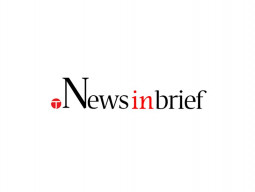
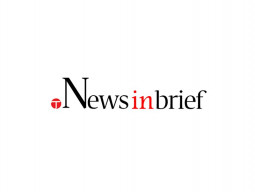

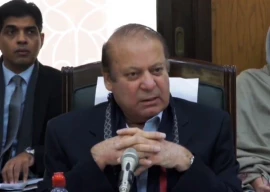


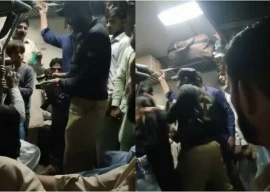
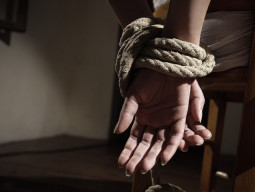












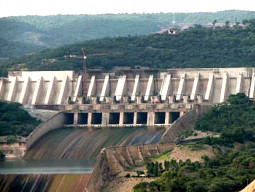


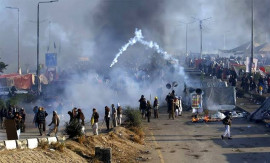






@A. Khan: I dont know who you are, and frankly i dont care to now. Not unless you share your wisdom with us all. Also, when was the last time you spoke to someone with a background in digital interceptions technology?
@Subhan: Https (signified mostly by a lock on the left of your browsers URL bar) is a system through which the server and the browser both communicate and confirm that the data transfer hasnt been tampered with. This includes reading/blocking. All your emails are on HTTPS, which is why your boss or IT head cant read your email if you use an HTTPS service like Gmail or hotmail.
Http on the other hand is not encrypted and can be blocked/intercepted very easy even using your home Wifi Router. Hope this helps!
@Rehan Baig: The whole Internet is full of blasphemous and questionable content. BAN IT ALL!
since when judges got authority for moral policing?
Our today´s society reflects the same compulsions, imposed on our past generations: Don´t you ever think or question!
@Imtiaz: I am not aware of the technicalities of http or https as much as you are. And what does networking industry has to do with the matter? I am just a learner. So, please guide me.
This ongoing foolish and ludicrous ban on YouTube...as usual Pakistani authorities cutting off their nose to spite their face....and making the country and its citizens laughing stocks in the rest of the world.
So the LHC essentially saying is burn all books because one book is offensive.
@Imtiaz: When you don't know something, it is best to remain silent and appear stupid, rather than to post something in your case, and remove all doubt.
@Ashar Zia: Are you a true muslim or have you turned naive ?
If the govt doesn't have the guts to support lifting the ban - why would a judge stick his neck out?
But they will keep releasing the terrorists.
Islam has been 'saved' yet again!
I am a YouTube since a long time and now I am going to live in Pakistan, didn't noticed such a shameful event is going on, I am in Saudi Arabia at the moment and YouTube is unblocked here, it never got blocked. :| Seriously what am I reading? Blockage of YouTube? Like Ashar Zia said, people don't only watch funny videos and songs, they watch useful stuff too like Vsauce (A informative channel). I have no idea how will I upload my animations and gameplay videos on YouTube in Pakistan. -_-
Most respectfully, I would like to say that please unblock YouTube in Pakistan, you could have simply blocked the video and it's URL's just like Saudi Arabia did.
Thanks. ಠ_ಠ
Even Google has blasphemous content against islam means you should block the google as well, porn sites should be banned no offense but banning youtube is still pretty fishy, Prime minister Raja pervez Ashraf couldnt solve countries biggest problems like terrorism, electricity and education but banned youtube just cause people couldnt watch videos which are against their political parties , videos in which shows huge corruption of politicans like Yousaf Raza Gillani and Raja Pervez Ashraf and their boss Asif Ali Zardari thats the main reason Raja Pervez Ashraf blocked Youtube cause that blasphemous material doesnt really affect the majority of Pakistani at all, if they did made a video against our prophets and islam, just ignore it like christains ignore when their jesus is being criticized in videos on youtube. So politicans dont play games with us and open Youtube nicely otherwise keep making pakistan the third world country forever.
The PTA was able to ask the ISPs to block the video on vimeo because vimeo runs on HTTP. YouTube runs on HTTPS. Theres a difference. Please consult with people who work in the networking industry.
why out govt is not opening this important and informative website... this is totally injustice....
I would request to open asap..
@Ashar Zia Yea, we will ban visit to US if we believe that this is the way to stop US from 'burning' the 'book'. Haven't you yet realised the love a Muslim holds towards its religion?
The judge should have done the right thing. The courts cannot be influenced by how people will react to their judgements.
@ayesha :
Pakistan is already a third world country. Gong by the recent happenings:
Pakistan --> stone age country!
These guys in charge don't understand how the world wide web works. If we had some knowledgeable IT guys in proper ministries, such shameful acts like blocking whole websites would never happen.
Tomorrow if some guy in the US burns a holy book, does it mean government of Pakistan will stop allowing people to visit the whole US ??
Same goes for big websites like Youtube. You are creating a lot more hurdles for students etc who use youtube for a lot more than just watching funny videos / indian songs.
I agreed with court to ban its untill you tube remove these nonsenses sketch
Another medieval judgement that will keep Pakistanis ignorant...why don't they try actually helping people to adjust to life in the 21st century instead of finding ways to hold them back...the archaic attitudes of your judges will guarantee that Pakistanis are left behind in the world economy and job markets...
When was the last time something right was done in my beloved country?